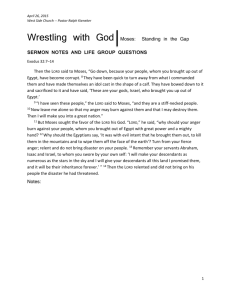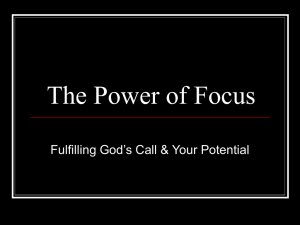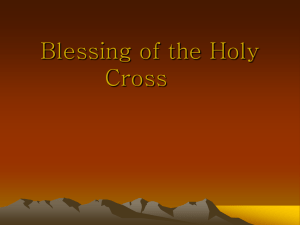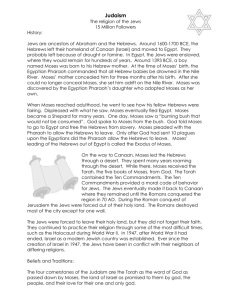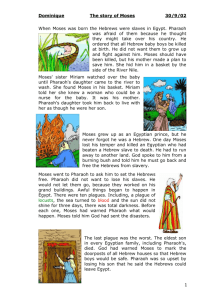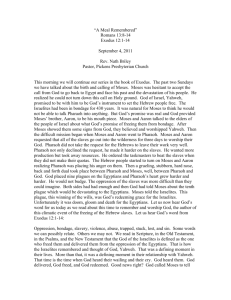The Passing Pleasures of Sin
advertisement
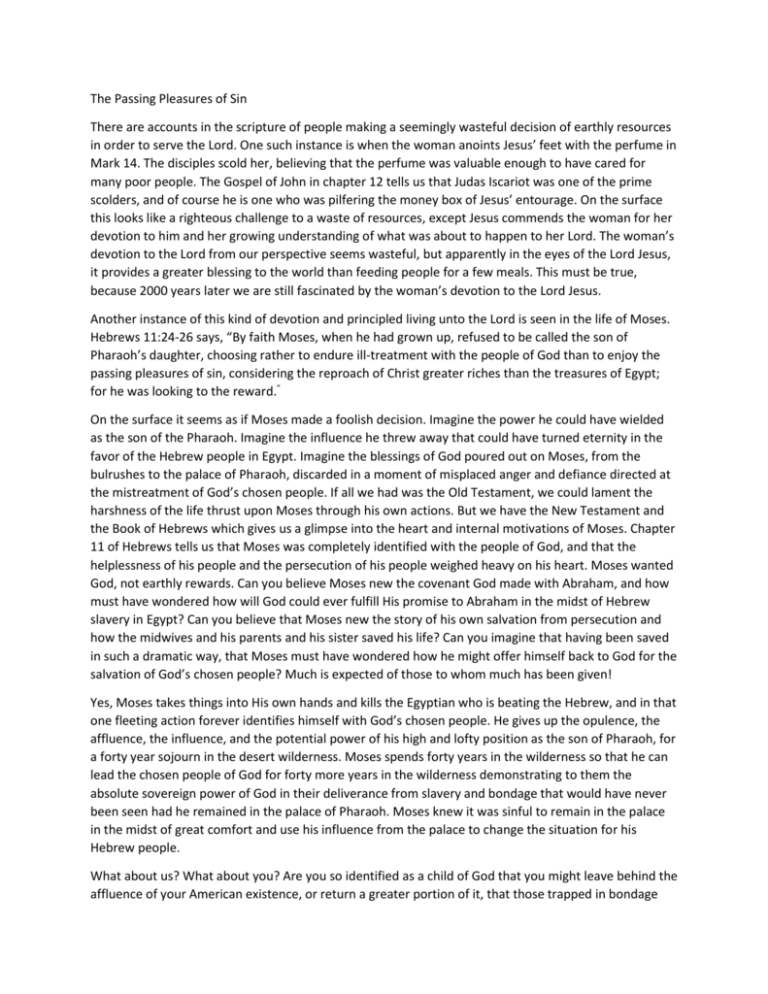
The Passing Pleasures of Sin There are accounts in the scripture of people making a seemingly wasteful decision of earthly resources in order to serve the Lord. One such instance is when the woman anoints Jesus’ feet with the perfume in Mark 14. The disciples scold her, believing that the perfume was valuable enough to have cared for many poor people. The Gospel of John in chapter 12 tells us that Judas Iscariot was one of the prime scolders, and of course he is one who was pilfering the money box of Jesus’ entourage. On the surface this looks like a righteous challenge to a waste of resources, except Jesus commends the woman for her devotion to him and her growing understanding of what was about to happen to her Lord. The woman’s devotion to the Lord from our perspective seems wasteful, but apparently in the eyes of the Lord Jesus, it provides a greater blessing to the world than feeding people for a few meals. This must be true, because 2000 years later we are still fascinated by the woman’s devotion to the Lord Jesus. Another instance of this kind of devotion and principled living unto the Lord is seen in the life of Moses. Hebrews 11:24-26 says, “By faith Moses, when he had grown up, refused to be called the son of Pharaoh’s daughter, choosing rather to endure ill-treatment with the people of God than to enjoy the passing pleasures of sin, considering the reproach of Christ greater riches than the treasures of Egypt; for he was looking to the reward.” On the surface it seems as if Moses made a foolish decision. Imagine the power he could have wielded as the son of the Pharaoh. Imagine the influence he threw away that could have turned eternity in the favor of the Hebrew people in Egypt. Imagine the blessings of God poured out on Moses, from the bulrushes to the palace of Pharaoh, discarded in a moment of misplaced anger and defiance directed at the mistreatment of God’s chosen people. If all we had was the Old Testament, we could lament the harshness of the life thrust upon Moses through his own actions. But we have the New Testament and the Book of Hebrews which gives us a glimpse into the heart and internal motivations of Moses. Chapter 11 of Hebrews tells us that Moses was completely identified with the people of God, and that the helplessness of his people and the persecution of his people weighed heavy on his heart. Moses wanted God, not earthly rewards. Can you believe Moses new the covenant God made with Abraham, and how must have wondered how will God could ever fulfill His promise to Abraham in the midst of Hebrew slavery in Egypt? Can you believe that Moses new the story of his own salvation from persecution and how the midwives and his parents and his sister saved his life? Can you imagine that having been saved in such a dramatic way, that Moses must have wondered how he might offer himself back to God for the salvation of God’s chosen people? Much is expected of those to whom much has been given! Yes, Moses takes things into His own hands and kills the Egyptian who is beating the Hebrew, and in that one fleeting action forever identifies himself with God’s chosen people. He gives up the opulence, the affluence, the influence, and the potential power of his high and lofty position as the son of Pharaoh, for a forty year sojourn in the desert wilderness. Moses spends forty years in the wilderness so that he can lead the chosen people of God for forty more years in the wilderness demonstrating to them the absolute sovereign power of God in their deliverance from slavery and bondage that would have never been seen had he remained in the palace of Pharaoh. Moses knew it was sinful to remain in the palace in the midst of great comfort and use his influence from the palace to change the situation for his Hebrew people. What about us? What about you? Are you so identified as a child of God that you might leave behind the affluence of your American existence, or return a greater portion of it, that those trapped in bondage and slavery to sin around the world might meet the True Deliverer, Jesus Christ? Let us not be trapped by a better American corporate business decisions for the local church existence when the eternal destiny of billions of people hang in the balance. God delivered over one million Hebrews to the doorstep of the Promised Land through an old broken down shepherd instead of a prince of Pharaoh, who would have believed it? Pastor Scott

